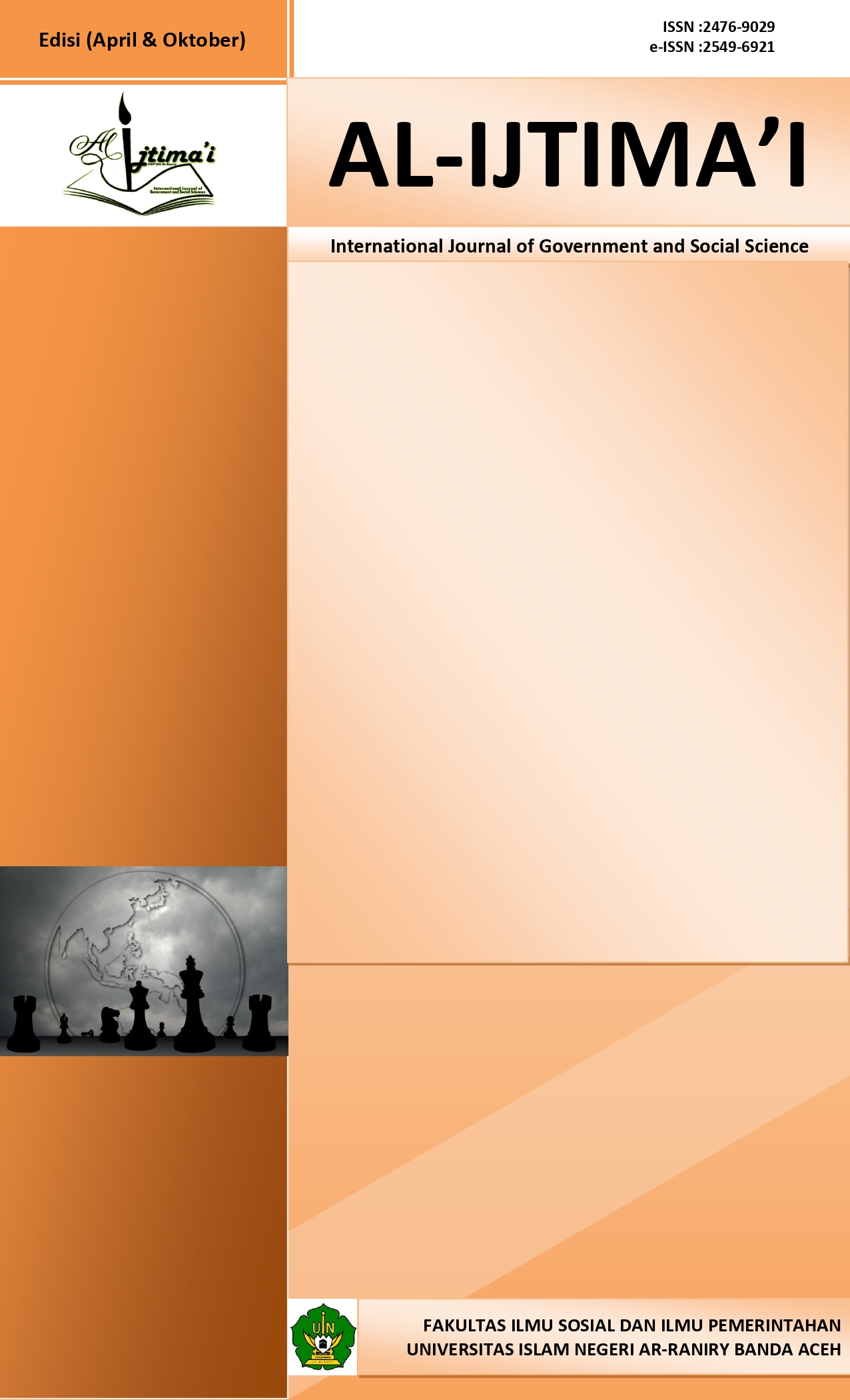An Experimental Study on Political Science Students: Impact of the Film Wag the Dog on Political Psychology
DOI:
https://doi.org/10.22373/jai.v10i1.4258Keywords:
Political Psychology, Film, Experimental StudiesAbstract
The mass media has considerable influence in this age of democracy. Besides providing information, political elites are often using the media as strategic tools to alter the political landscape through the use of political imagery and rhetoric. This research employs experimental quantitative methodology to examine the impact of media, specifically the film Wag the Dog, on the behavior of political science students. By adopting three indicators drawn from political psychology principles—emotions, political beliefs, and motivations for political behavior—we identified that gender and scientific background influenced the public's reaction to the media's construction of conditions. Three results were obtained from this experimental investigation: 1) The Wag the Dog film did not have a discernible impact on the emotional dimension of students; 2) its influence on the political dimension of belief was not significant; 3) its effect on the dimension of political motives of behavior was extremely dominant; and 4) variations in responses to the three dimensions were influenced by gender disparities.
References
Aldita, D. (2014). Analisis Isi Film Wag The Dog Tentang Pelanggaran-Pelanggaran Kode Etik Humas. 2(4), 75–87.
Andriana, R. (2015). Realitas Film Jokowi Sebagai Media Kampanye Politik. Ilmu Komunikasi.
AP, S. (1989). Dimensi-Dimensi Komunikasi Politik (1st ed., Vol. 1). Citra Aditya Bakti.
Abi-Ghannam, G., Perkins, K. M., & Fine, M. (2023). The comrade on the crossroads of scholarship and struggle: Troubling the exile of Frantz Fanon from social and political psychology. In Social and Personality Psychology Compass (Vol. 17, Issue 2). https://doi.org/10.1111/spc3.12727
Butler, L. D., Koopman, C., & Zimbardo, P. G. (1995). The Psychological Impact of Viewing the Film “JFK”: Emotions, Beliefs, and Political Behavioral Intentions. Political Psychology, 16(2), 237. https://doi.org/10.2307/3791831
Combs, J. (1993). Movies and Politics (J. E. Combs, Ed.; 1st ed., Vol. 1). Routledge. https://doi.org/10.4324/9781315855875
Cudina, J. N., Ossa, J. C., Millán, J. D., López-López, W., & Tateo, L. (2023). Historical Development of Political-Critical Thinking in Colombian Psychology. Revista Colombiana de Psicologia, 32(1). https://doi.org/10.15446/rcp.v32n1.98961
Dan Nimmo. (1989). Political communication yearbook (1st ed., Vol. 1). Southern Illinois University Press.
Handayani, R. (2013). Peran Spin Doctor Dalam Pembentukan Opini Publik Kandidat Walikota dan Wakil Walikota Kendari Dalam Pemenangan Pemilihan Kepala Daerah. Jurnal Kominfo, 16(1), 49–60.
Huddy, L., Sears, D. O., Levy, J. S., & Jerit, J. (2023). INTRODUCTION: Theoretical Foundations of Political Psychology. In The Oxford Handbook of Political Psychology, Third Edition. https://doi.org/10.1093/oxfordhb/9780197541302.013.1
Kertzer, J. D., & Tingley, D. (2018). Political Psychology in International Relations: Beyond the Paradigms. In Annual Review of Political Science (Vol. 21). https://doi.org/10.1146/annurev-polisci-041916-020042
McQuail, D. (2016). Media Performance. In The International Encyclopedia of Political Communication (pp. 1–9). Wiley. https://doi.org/10.1002/9781118541555.wbiepc095
Muldoon, O. T., Liu, J. H., & McHugh, C. (2021). The Political Psychology of COVID-19. In Political Psychology (Vol. 42, Issue 5). https://doi.org/10.1111/pops.12775
Nesbitt-Larking, P., & Kinnvall, C. (2012). The Discursive Frames of Political Psychology. Political Psychology, 33(1). https://doi.org/10.1111/j.1467-9221.2011.00862.x
Nugroho, E., & Sudono, A. (2022). Pembentukan Citra Positif Melalui Aspek Gramatika dalam Wacana Alat Peraga Kampanye (Forming of Positive Image through Grammatical Aspects in the Discourse of Campaign Props). In Jalabahasa. https://doi.org/10.36567/jalabahasa.v18i1.864
Parkhurst, J. (2016). The Politics of Evidence: From evidence-based policy to the good governance of evidence. In The Politics of Evidence: From Evidence-Based Policy to the Good Governance of Evidence (Issue December 2016). https://doi.org/10.4324/9781315675008
Rovira Kaltwasser, C. (2021). Bringing political psychology into the study of populism. Philosophical Transactions of the Royal Society B: Biological Sciences, 376(1822). https://doi.org/10.1098/rstb.2020.0148
Schoonvelde, M., Schumacher, G., & Bakker, B. N. (2019). Friends with text as data benefits: Assessing and extending the use of automated text analysis in political science and political psychology. In Journal of Social and Political Psychology (Vol. 7, Issue 1). https://doi.org/10.5964/jspp.v7i1.964
Downloads
Published
How to Cite
Issue
Section
License
Copyright (c) 2024 Al-Ijtima`i: International Journal of Government and Social Science

This work is licensed under a Creative Commons Attribution-ShareAlike 4.0 International License.
Authors who publish with this journal agree to the following terms:
- Authors retain copyright and grant the journal right of first publication with the work simultaneously licensed under a Creative Commons Attribution License (CC-BY-SA) that allows others to share the work with an acknowledgment of the work's authorship and initial publication in this journal (See The Effect of Open Access);
- Authors are permitted and encouraged to post their work online (e.g., in institutional repositories or on their website) prior to and during the submission process, as it can lead to productive exchanges, as well as earlier and greater citation of published work;
- Authors are able to enter into separate, additional contractual arrangements for the non-exclusive distribution of the journal's published version of the work (e.g., post it to an institutional repository or publish it in a book), with an acknowledgment of its initial publication in this journal.
















